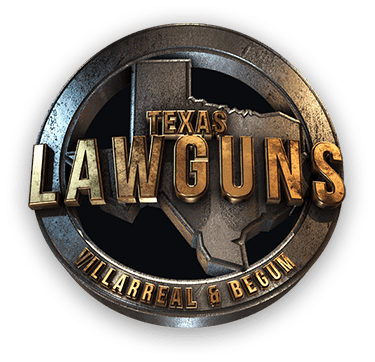In the U.S, we regulate who can drive large commercial vehicles. It makes sense. Large 18-wheelers are not like normal cars. They weigh much more and are often pulling several tons in cargo. Those who would operate these vehicles need to obtain what is called a commercial driver’s license (CDL). Vehicles like buses, 18 wheelers, dump trucks, or hazmat vehicles, require a CDL to operate. However, this wasn’t always the case. Before 1986, commercial drivers in most states could operate these large vehicles, using only a state-issued automobile driver’s license. No additional training was required.
This obviously resulted in numerous crashes. So, the commercial motor vehicle safety act was passed and required these operators to get training. This law has significantly improved highway safety, ensuring these drivers were qualified to be on the road. While receiving training is necessary, many trucking companies forgo this necessary precaution and let unqualified drivers on the road.
Diffrent Classes of CDL Licenses
There are three different classes of CDL classes. While a CDL is needed for any vehicle and trailer that exceeds 26,001 pounds, there are distinctions made based on the type of vehicle being driven Having a class C license doesn’t qualify you to drive a class A vehicle. Different vehicles require different knowledge, the different classes of CDLs try to take that into consideration when licensing a driver.
Class A CDL
There are three different classes of CDL classes. While a CDL is needed for any vehicle and trailer that exceeds 26,001 pounds, there are distinctions made based on the type of vehicle being driven Having a class C license doesn’t qualify you to drive a class A vehicle. Different vehicles require different knowledge, the different classes of CDLs try to take that into consideration when licensing a driver.
>Livestock Carriers.
>Tanker Vehicles.
>Trucks and trailers, including double and triple trailers.
>Semi-tractor-trailers.
>Flatbeds.
Class B CDL
A class B CDL is used for smaller commercial vehicles. This class also allows you to operate vehicles included in class C. Some examples include:
>Segmented buses.
>Box Trucks.
>Dump Trucks with small trailers.
>Large Busses.
>Striaght Trucks.
Class C CDL
A class C CDL is the most limited commercial license. Those with a class C can operate vehicles that transport more than 16 passengers (including the driver) and small hazmat vehicles. Some examples include:
>Double/triple trailers.
>Buses.
>Tanks Trucks.
>Hazmat Vehicles.
CDL Endorsements
State governments issue CDL endorsements to specific who can operate certain commercial motor vehicles. These endorsements require further testing after getting your A, B, or C CDL. Some states have different endorsements, however, every state includes the following:
H Endorsement – This CDL H endorsement allows the truck driver to operate vehicles loaded with hazardous materials (hazmat). Obtaining an H endorsement to transport hazardous materials requires passing a written knowledge test.
N Endorsement – This CDL N Endorsement permits the truck driver to operate a tanker vehicle hauling gases and liquids. Obtaining an L endorsement requires passing a written knowledge test.
P Endorsement – This CDL P Endorsement allows the CDL holder to drive a bus or vehicle designed to carry 16 or more passengers, including the driver. Potential P endorsement holders include those that pass a road test and written test. School bus driver candidates must pass a federal background check and obtain an S Endorsement while maintaining a P Endorsement.
S Endorsement – Possible school bus drivers must obtain a CDL S Endorsement, undergo a comprehensive background check, and pass a road skills test and written knowledge test.
T Endorsement – A CDL holder with a T Endorsement can drive a vehicle hauling double and triple trailers. However, obtaining the T Endorsement requires completing a written knowledge test.
X Endorsement – CDL holders with X Endorsements can operate tanker trucks hauling hazardous materials (hazmat). Passing a written knowledge test is necessary to obtain an X endorsement.
CDL Restrictions
Sometimes during a CDL test, a driver might get restrictions on their license. For example, if they completed their test with an automatic vehicle, they may only be allowed to operate manual transmission vehicles. Some other examples include:
- Commercial learner’s permit operating a purged tank vehicle and no cargo trailers only
- Corrective lenses
- Daylight operation only
- Dual outside mirrors
- Group B and Group C passenger vehicles
- Group C passenger vehicles only
- Hearing aid required
- Mechanical aid
- Medical variance required
- Medical waiver required
- No combination of vehicles (fifth-wheel)
- No full airbrake-equipped commercial trucks
- Prosthetic aid
- Vehicles without airbrakes
What Disqualifies a Person from Getting a CDL?
Those with a felony conviction may also get a CDL. Many trucking companies are happy to give felons a second chance, assuming they have met their five-year waiting period before working for a transportation company. However, some felonies will disqualify a potential commercial vehicle driver completely. Felonies that prohibit a trucker from obtaining a CDL include:
- First or second-degree manslaughter involving a motor vehicle
- Using commercial vehicles to commit felonies
- Treason
- Smuggling
- Extortion
- Motor vehicle misconduct
- Arson
- Assault with the intent to murder
- Bribery
- Taking the life of others by driving negligently or recklessly
Hit by an 18-Wheeler?
At Villarreal and Begum, we know dealing with the aftermath of an 18-wheeler accident can be stressful. That’s why we’re here to help you figure out what to do next. You need an experienced attorney to fight the liable party. Villarreal and Begum know exactly how to find who’s liable, and how to get you the money you deserve. If you have been in this situation, contact us today. Your consultation is always free. Call us or send us a message online. With offices in San Antonio, Austin, McAllen, and Laredo, the Texas Law Guns will fight for you.
The Villarreal & Begum, LAW GUNS dedicates their time and effort towards helping people in Texas find justice for personal negligence encountered while living their normal, everyday lives.





